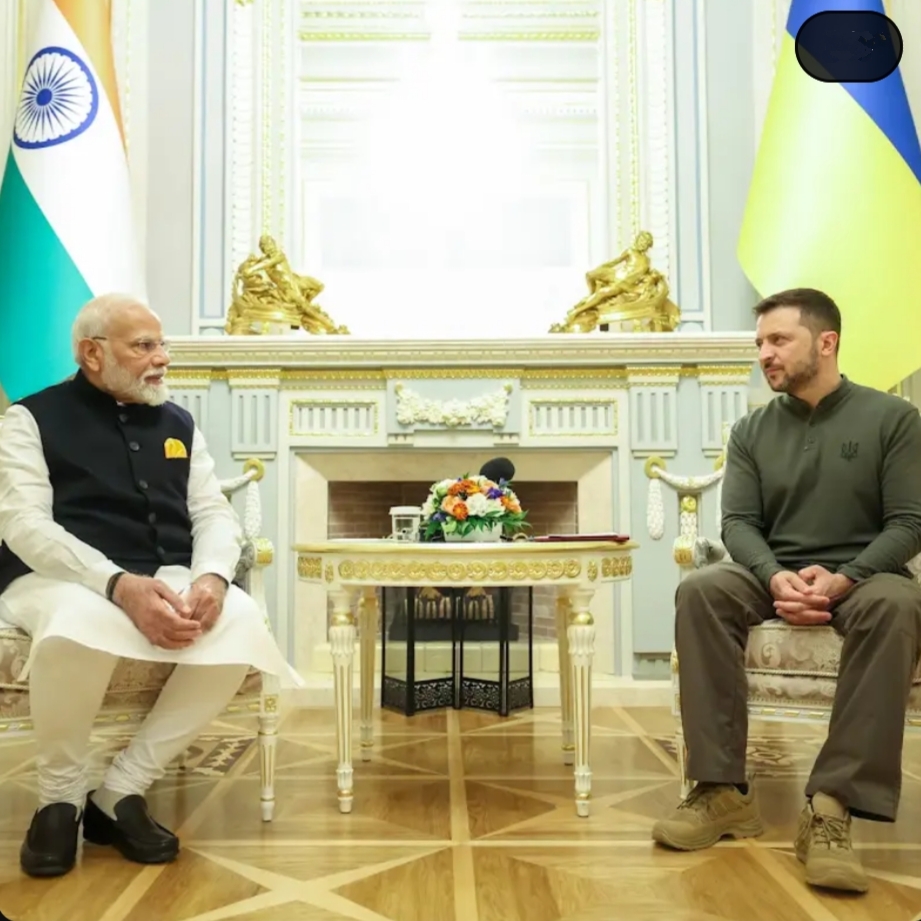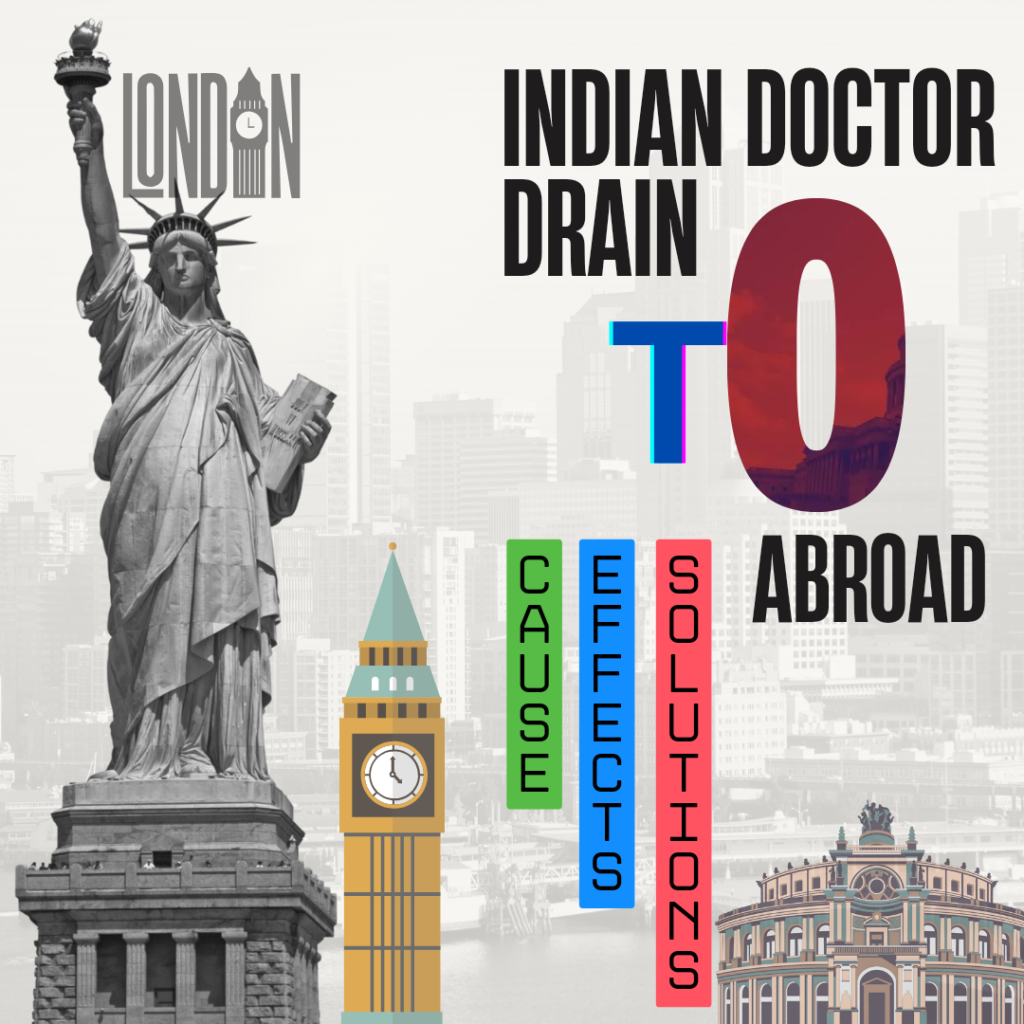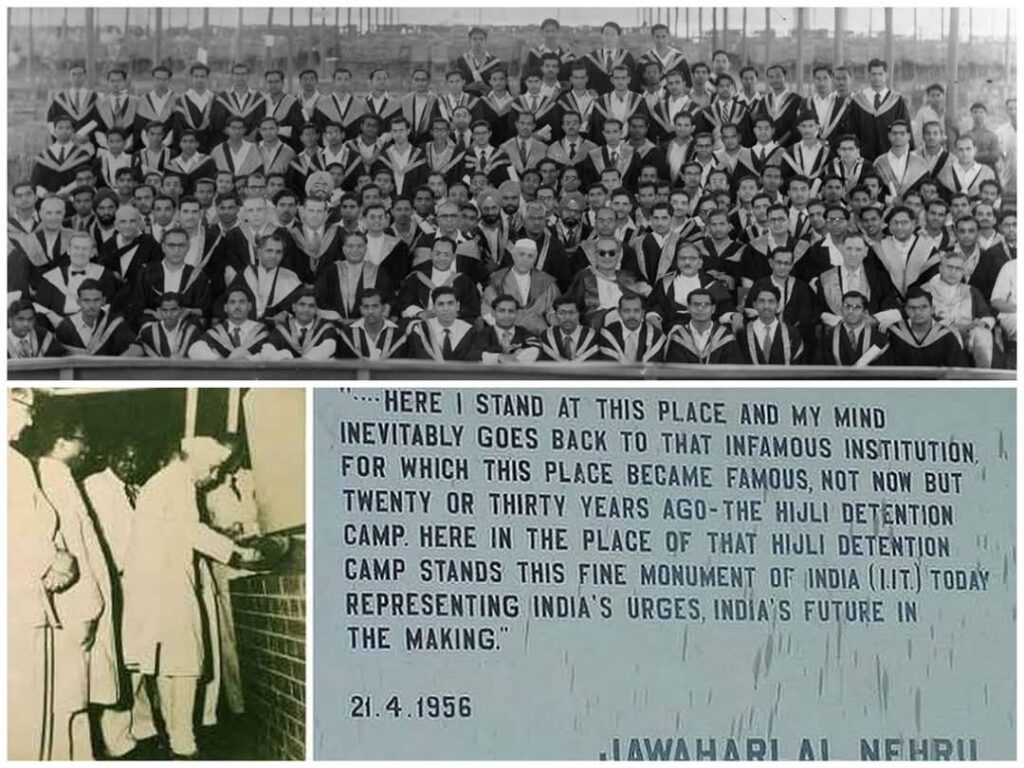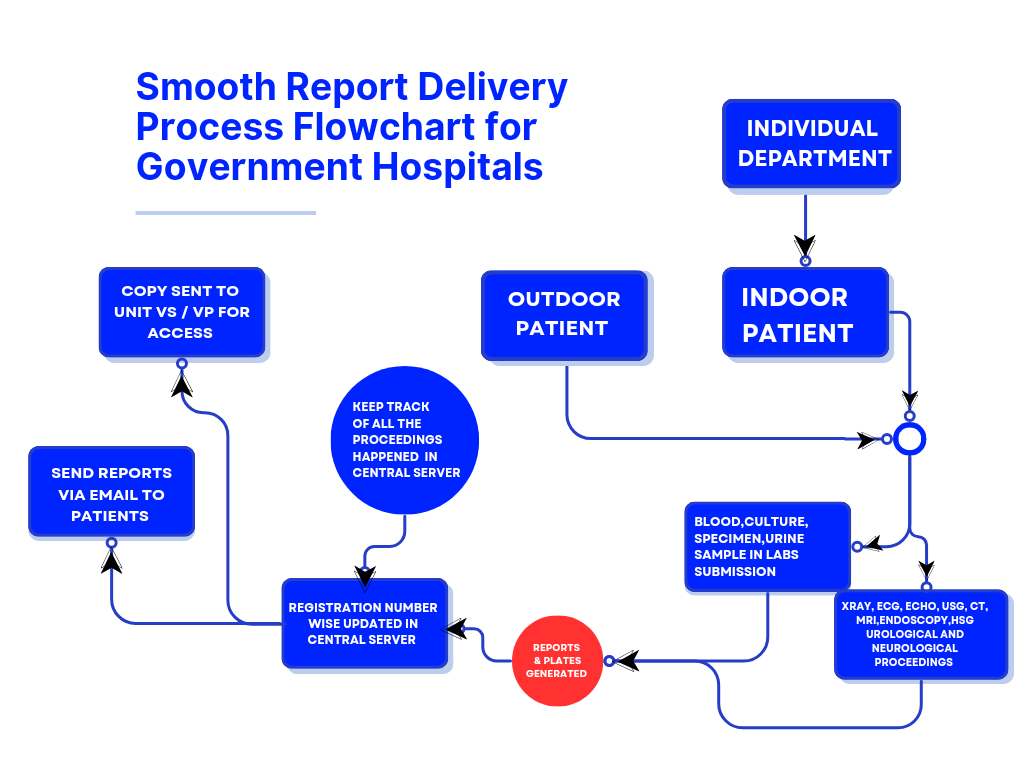Indian Prime Minister Narendra Modi met with Ukrainian President Volodymyr Zelenskyy in Kyiv on Friday 23 August, 2024.This marked the first ever visit by an Indian Premier to Ukraine. since diplomatic relations were established between the two countries in the year 1992.
The historic meeting is as usual expected to focus on finding a peaceful resolution to the ongoing conflict between Ukraine and Russia.
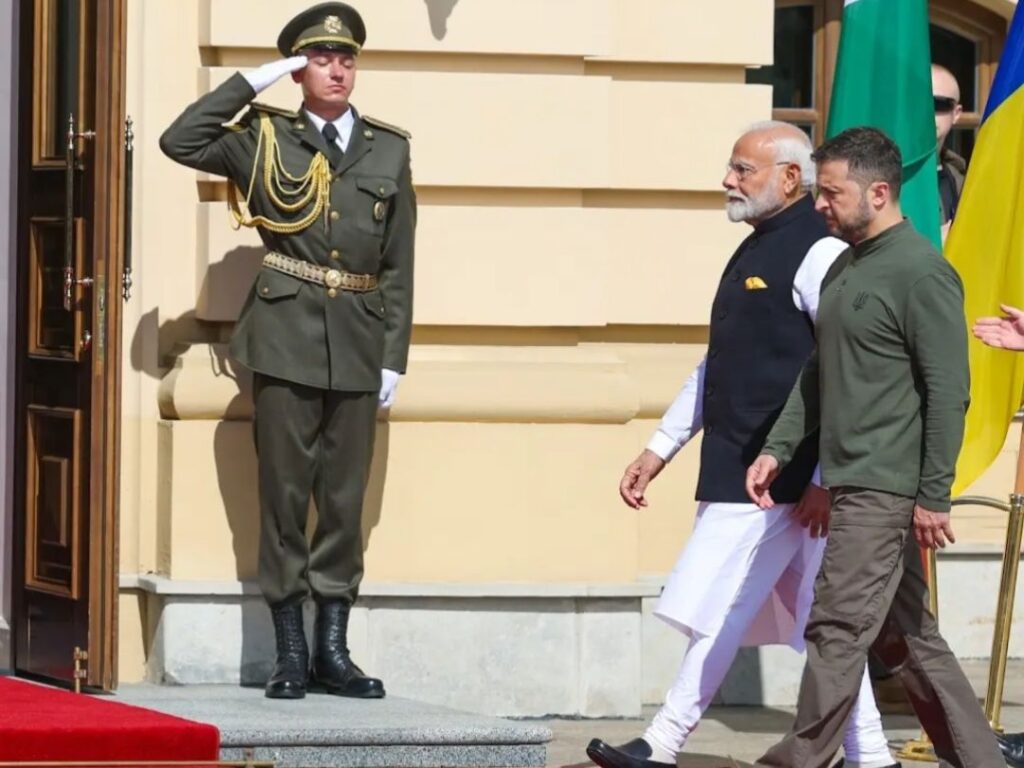
Strengthening Ties: Four Key Agreements Signed During Prime Minister Narendra Modi’s Visit to Ukraine
During Prime Minister Narendra Modi’s visit, both Ukraine and India strengthened their partnership by signing four pivotal agreements, each aimed at enhancing cooperation and mutual benefits across various sectors.
Cooperation in Agriculture and the Food Industry
The first agreement focuses on :
– Cooperation in agriculture and the food industry.
– Expand mutually beneficial partnerships
– Create favorable market conditions
– Improvements of food security in both countries
This agreement is expected to boost trade and investment in the agricultural sector, ensuring national food security.
Humanitarian Grant & Assistance
The second agreement, a memorandum of understanding on Indian humanitarian grant assistance, outlines the expansion of economic and technical cooperation between the two nations. This framework will enable India to provide aid for high-impact community development projects, including reconstruction and recovery efforts in Ukraine, fostering economic resilience and stability.
Cultural Cooperation Program (2024-2028)
The third agreement is a cultural cooperation program set for 2024-2028. This program aims to :
– Promote direct links between art collectives, individual performers, and cultural institutions of both countries.
– Encourage joint cultural and artistic activities
– Enhance mutual understanding and cultural exchange.
Pharmaceutical Standards Memorandum
The fourth agreement, a memorandum of understanding on pharmaceutical standards, seeks to promote pharmaceutical interests and safeguard public health.
It aims to prevent
– The circulation of substandard and counterfeit medicines
– Ensure the safety and quality of pharmaceuticals supplied to both markets
– Build mutual trust and collaboration in the healthcare sector
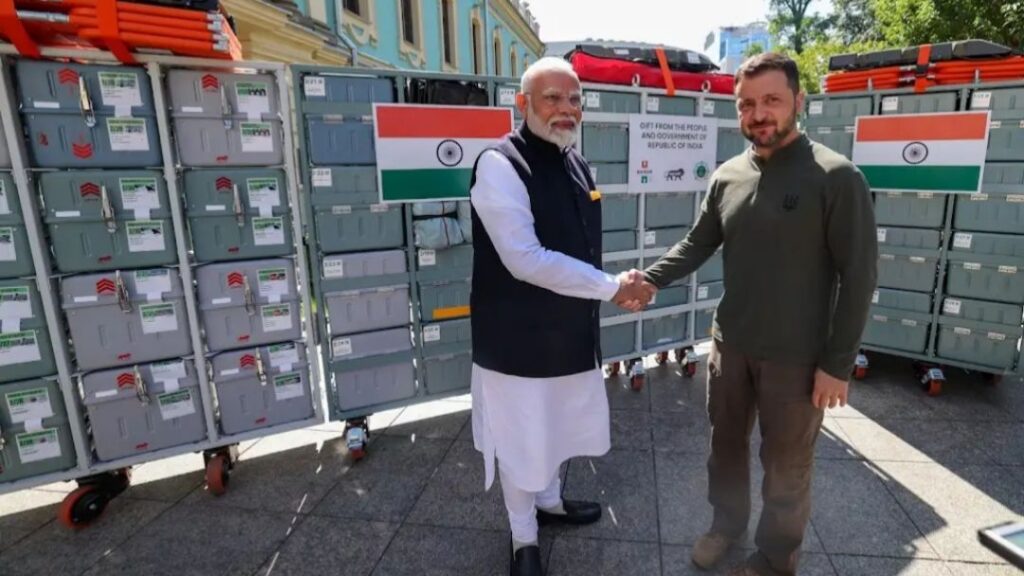
BHISHM Cubes to Ukraine
( Bharat Health Initiative for Sahyog Hita & Maitri )
The BHISHM initiative aims to provide basic medical facilities and equipment in a mobile, easily deployable format.This is a part of Project Aarogya Maitri.
It features are :
Compact and Organized AID Material
– These are not just ordinary medical kits; they represent a cutting-edge solution designed to save lives in war zones and disaster-stricken areas.
– They are a compact mobile hospitals with essential medicines and equipment stored in 15-inch cubical boxes.
– They are organized by injury type to address medical needs during emergencies like wars or natural disasters.
– Each cube is designed to be carried by an individual, with a maximum weight of 20 kg.
Capacity and Features
– One BHISHM cube is equipped to handle approximately 200 emergency cases
– It can address a range of needs including trauma, bleeding, burns, fractures, and shock.
– The cubes also support basic surgical procedures
Transport Flexibility and Adjustable
– The cubes are mounted on a sturdy and adjustable framework, allowing for versatile transportation by air, sea, land, and even drones.
– Cubes have the capability to generate their own power and oxygen for limited durations.
Echo of Indian Voice and Relationship
BHISHM Cubes embodies India’s commitment to cooperation and friendship with countries .This can be helpful as an essential asset in scenarios where local healthcare facilities may be overwhelmed or inaccessible.
Blueprint for future humanitarian aid efforts : Reshaping Indian Foreign Policy
Delivering healthcare in war zones is extremely challenging due to targeted attacks on medical facilities, disrupted supply chains, and the dangers faced by healthcare workers.
Quick and effective medical response is crucial. India’s donation of BHISHM Cubes to Ukraine showcases an innovative approach to emergency medical care, providing a portable and durable solution that can serve as a model for future humanitarian efforts.
Durability
Built to withstand harsh conditions, ensuring they remain operational in war zones and natural disasters.
Scalability
Can be used as a blueprint for future humanitarian initiatives, offering a scalable solution for delivering healthcare in crisis situations.
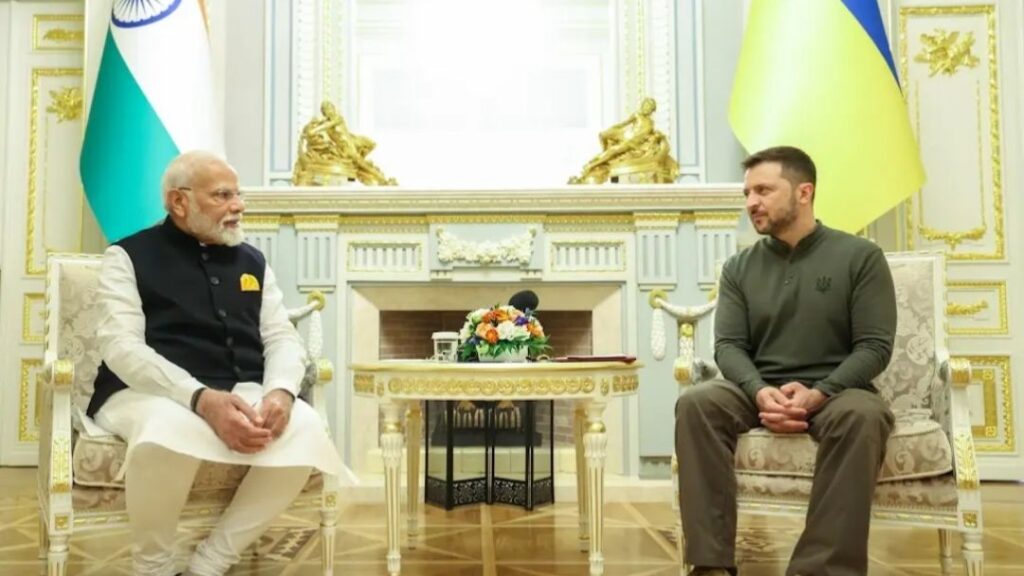
Significance of Indian PM ‘s Ukraine Visit and future impacts in view of India – Ukraine – Russia diaspora
World witnessed India’s strategic autonomy :
Though India has a well established bilateral relationship with Russia still the visit to Ukraine during this ongoing conflicts shows India’s position and view towards Ukraine and gives a strong massage that the ongoing conflict is independent from that of Russia.
Expanding Engagement Beyond Traditional Partners to begin a Pan European Pivot
The visit also reflects India’s broader strategy to strengthen ties with Europe. While countries like Russia, Germany, France, and Britain have traditionally been prioritized, India is now expanding its engagement with Ukraine, Poland, and Greece, signaling the beginning of a Pan-European pivot.
Reshaping Foreign Policy : Non-Alignment to Maintaining close ties with all the countries
India’s foreign policy has evolved significantly over the decades. Originally, India adopted a non-alignment stance during the Cold War
– The aim was to stay neutral and not align with any major power blocs like the United States or the Soviet Union.
– This policy allowed India to navigate complex international dynamics without directly involving itself in the ideological conflicts of the time.
However, in recent years, India’s approach has shifted towards building strong bilateral relationships with a wide range of countries, regardless of their political alignments.
This shift reflects a more pragmatic strategy, focusing on maintaining close ties with various nations to :
– Enhance ECONOMIC cooperation
– Ensure national SECURITY
– Gain DIPLOMATIC leverage.
By engaging with multiple countries, India seeks to diversify its partnerships, balance its global interests, and play a more active role on the international stage, in the meantime it also retains the core principle of Indian strategic autonomy.
NB : All views are my Personal
